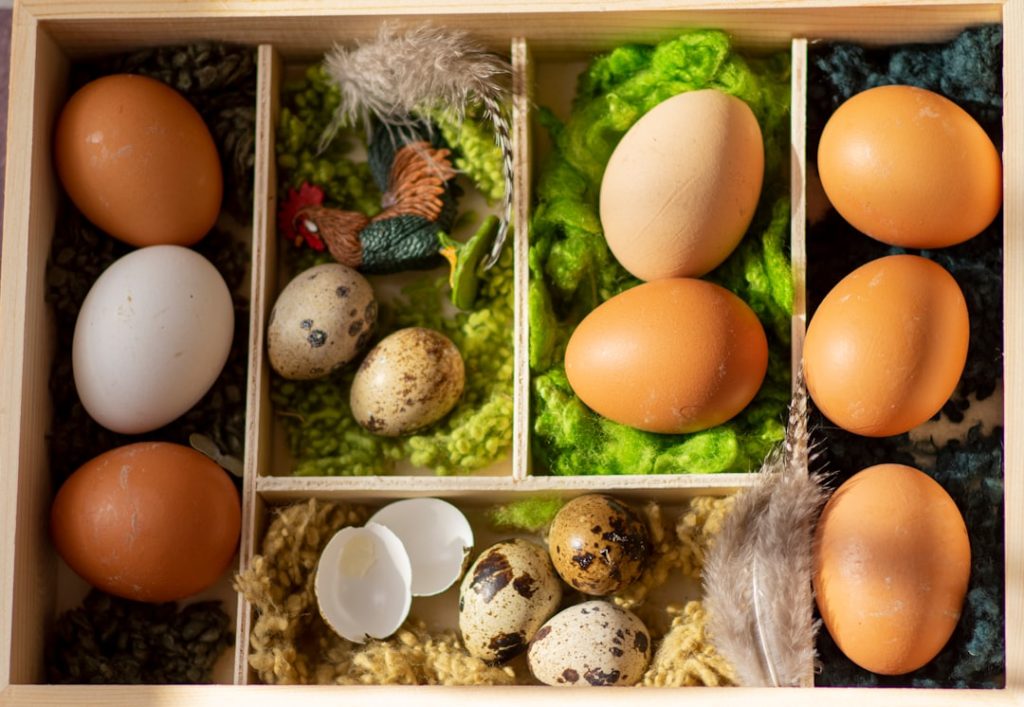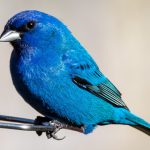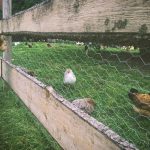Chickens have a significant impact on grass when allowed to roam freely. Their scratching and pecking behaviors disturb the soil, potentially uprooting grass and creating bare patches. Chicken droppings can fertilize the grass, but improper management may lead to over-fertilization and damage.
Understanding these effects is crucial for maintaining healthy pastures. Farmers can make informed decisions about chicken management by observing their behavior and the resulting changes in the grass. Chickens also help control pests in grass, such as insects and grubs, through foraging.
This can positively impact grass health by reducing harmful pests. However, without proper management, chickens may contribute to weed spread in pastures. Comprehending chicken-grass interactions is essential for implementing effective strategies that promote healthy, vibrant pastures.
Table of Contents
- 1 Implementing rotational grazing for chickens
- 2 Providing supplemental feeding for chickens
- 3 Utilizing chicken tractors for controlled grazing
- 4 Managing chicken waste for grass health
- 5 Using natural remedies for grass maintenance
- 6 Monitoring and adjusting chicken and grass interactions
- 7 FAQs
- 7.1 What are the benefits of keeping chickens for maintaining green grass?
- 7.2 How can I prevent chickens from damaging the grass?
- 7.3 What type of grass is best for areas with chickens?
- 7.4 How can I protect my grass from overgrazing by chickens?
- 7.5 Are there any potential drawbacks to keeping chickens for maintaining green grass?
Key Takeaways
- Chickens can have a positive impact on grass by controlling pests and fertilizing the soil with their droppings
- Rotational grazing allows chickens to graze on different sections of grass, promoting healthier growth and preventing overgrazing
- Supplemental feeding with grains and kitchen scraps can provide essential nutrients for chickens and reduce their impact on grass
- Chicken tractors provide a controlled grazing environment, allowing chickens to access fresh grass while protecting the rest of the area
- Proper management of chicken waste, such as composting and spreading, can benefit grass health and soil fertility
- Natural remedies like herbal supplements and essential oils can help maintain grass health and support chicken well-being
- Regular monitoring and adjustments to chicken and grass interactions are essential for sustainable and balanced coexistence
Implementing rotational grazing for chickens
Benefits for the Grass
Implementing rotational grazing for chickens can help to maintain a balanced and sustainable ecosystem, as it allows the grass to thrive while providing the chickens with fresh forage.
Preventing Soil Erosion and Compaction
By dividing the pasture into smaller sections and rotating the chickens between them, farmers can ensure that the grass remains healthy and productive. Rotational grazing also helps to prevent soil erosion and compaction, as well as reduce the risk of nutrient depletion in the soil.
Promoting Biodiversity and Sustainability
This management strategy promotes biodiversity in the pasture, as it allows different sections of grass to flourish at different times. By implementing rotational grazing for chickens, farmers can create a more resilient and sustainable pasture that benefits both the chickens and the grass.
Providing supplemental feeding for chickens
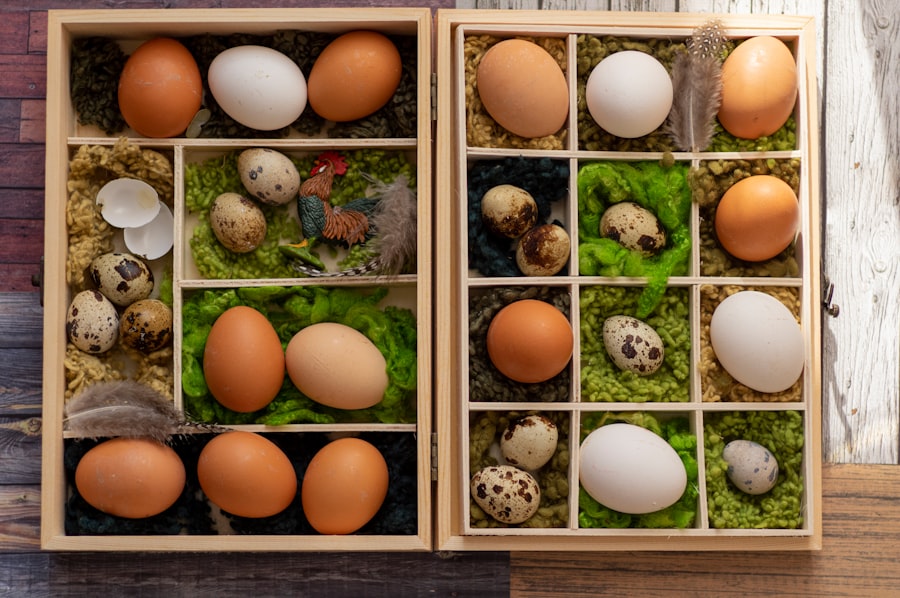
In addition to foraging on grass, chickens also require supplemental feeding to meet their nutritional needs. Providing supplemental feeding for chickens is essential for ensuring that they have access to a balanced diet that supports their health and well-being. This can include a variety of feed options, such as grains, seeds, fruits, and vegetables, as well as commercial poultry feed.
By providing supplemental feeding for chickens, farmers can ensure that their birds have access to essential nutrients that may not be available through foraging alone. Supplemental feeding can also help to reduce the impact of chickens on grass by providing them with an alternative food source. This can help to prevent overgrazing and minimize damage to the pasture, while still allowing the chickens to benefit from foraging behavior.
By carefully managing supplemental feeding for chickens, farmers can support the health of their birds while also promoting the health and vitality of the grass.
Utilizing chicken tractors for controlled grazing
Chicken tractors are portable enclosures that are used to confine chickens to a specific area of pasture for controlled grazing. These structures allow farmers to move their chickens to different sections of grass while still providing them with access to fresh forage. Utilizing chicken tractors for controlled grazing can help to prevent overgrazing and minimize damage to the pasture, while also promoting healthy regrowth of the grass.
By confining the chickens to a specific area with a chicken tractor, farmers can manage their impact on the grass and ensure that it remains healthy and productive. Chicken tractors also provide protection for the chickens from predators and adverse weather conditions, while still allowing them to benefit from foraging behavior. This management strategy allows farmers to maintain a balance between supporting the health of their birds and promoting the health of the grass.
By utilizing chicken tractors for controlled grazing, farmers can create a more sustainable and resilient pasture that benefits both the chickens and the grass.
Managing chicken waste for grass health
Chicken waste can have both positive and negative impacts on grass, depending on how it is managed. While chicken droppings can provide valuable nutrients for the grass, if not managed properly, they can also lead to over-fertilization and damage to the pasture. Managing chicken waste for grass health is essential for maintaining a balanced ecosystem that supports both the chickens and the grass.
This can include strategies such as regularly moving chicken coops to prevent over-fertilization in one area, as well as composting chicken manure to create a natural fertilizer that can be applied to the pasture. By carefully managing chicken waste, farmers can ensure that the grass receives the nutrients it needs to thrive without being overwhelmed by excessive fertilization. This promotes healthy regrowth and prevents damage to the pasture, while still allowing the chickens to contribute valuable nutrients through their droppings.
By implementing effective waste management strategies, farmers can support the health and vitality of both their birds and their pasture.
Using natural remedies for grass maintenance
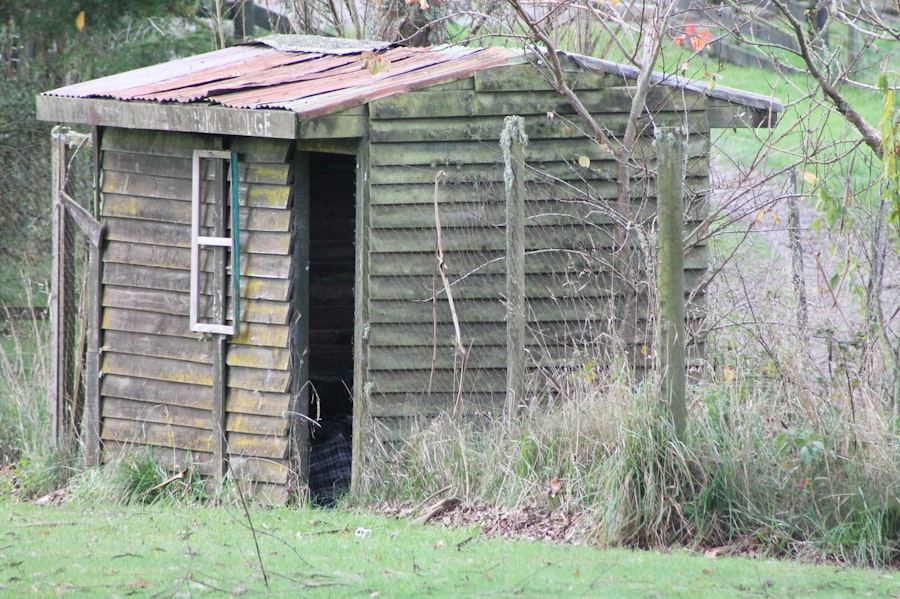
Promoting Healthy Grass Growth
In addition to managing chicken waste, farmers can use natural remedies to promote healthy growth and prevent damage to the grass. This can include strategies such as planting cover crops to protect the soil from erosion and improve soil fertility, as well as using natural fertilizers such as compost or manure tea to support healthy regrowth of the grass.
Controlling Pests and Weeds Naturally
Natural remedies can also help to control pests and weeds in the pasture without relying on harmful chemicals that can negatively impact the ecosystem. This promotes biodiversity in the pasture and supports a healthy balance between the chickens and the grass.
Creating a Sustainable and Resilient Pasture
By using natural remedies for grass maintenance, farmers can create a more sustainable and resilient pasture that benefits both the chickens and the grass. By incorporating natural remedies into their management strategies, farmers can create a more sustainable and environmentally friendly approach to maintaining their pasture.
Monitoring and adjusting chicken and grass interactions
Finally, monitoring and adjusting chicken and grass interactions is essential for maintaining a healthy and balanced ecosystem. By regularly observing the behavior of the chickens and the condition of the grass, farmers can make informed decisions about how to manage their pasture in a way that supports both the birds and the grass. This may include adjusting rotational grazing schedules based on grass regrowth, as well as implementing changes to supplemental feeding or waste management strategies as needed.
By monitoring and adjusting chicken and grass interactions, farmers can ensure that their pasture remains healthy and productive while still providing valuable resources for their birds. This proactive approach allows farmers to address potential issues before they become significant problems, promoting a more sustainable and resilient ecosystem that benefits both the chickens and the grass. By staying attentive to these interactions, farmers can create a thriving environment that supports both their livestock and their land.
If you’re interested in learning more about how to keep your grass green with chickens, you might want to check out this article on creating a garden chicken coop. This article provides valuable tips on how to design a coop that allows your chickens to roam and forage in a way that benefits your garden and keeps your grass healthy. For more information on raising chickens and maintaining a healthy coop, visit PoultryWizard.com. Additionally, if you’re located in Grand Island, NE, you can find specific tips for building a chicken coop in your area by visiting this article.
FAQs
What are the benefits of keeping chickens for maintaining green grass?
Chickens can help maintain green grass by eating insects and pests that can damage the grass. Their droppings also act as a natural fertilizer, promoting healthy grass growth.
How can I prevent chickens from damaging the grass?
You can prevent chickens from damaging the grass by rotating their grazing area regularly, providing them with a designated area for dust bathing, and ensuring they have access to a balanced diet to reduce the amount of foraging they do in the grass.
What type of grass is best for areas with chickens?
Grasses that are hardy and can withstand some pecking and scratching, such as fescue, ryegrass, and clover, are best for areas with chickens.
How can I protect my grass from overgrazing by chickens?
You can protect your grass from overgrazing by providing supplemental feed to the chickens, using temporary fencing to restrict their access to certain areas, and allowing the grass to rest and recover by rotating their grazing areas.
Are there any potential drawbacks to keeping chickens for maintaining green grass?
Some potential drawbacks of keeping chickens for maintaining green grass include the risk of overgrazing, the need for regular maintenance of their grazing areas, and the possibility of their droppings causing uneven patches in the grass.
Meet Walter, the feathered-friend fanatic of Florida! Nestled in the sunshine state, Walter struts through life with his feathered companions, clucking his way to happiness. With a coop that’s fancier than a five-star hotel, he’s the Don Juan of the chicken world. When he’s not teaching his hens to do the cha-cha, you’ll find him in a heated debate with his prized rooster, Sir Clucks-a-Lot. Walter’s poultry passion is no yolk; he’s the sunny-side-up guy you never knew you needed in your flock of friends!

